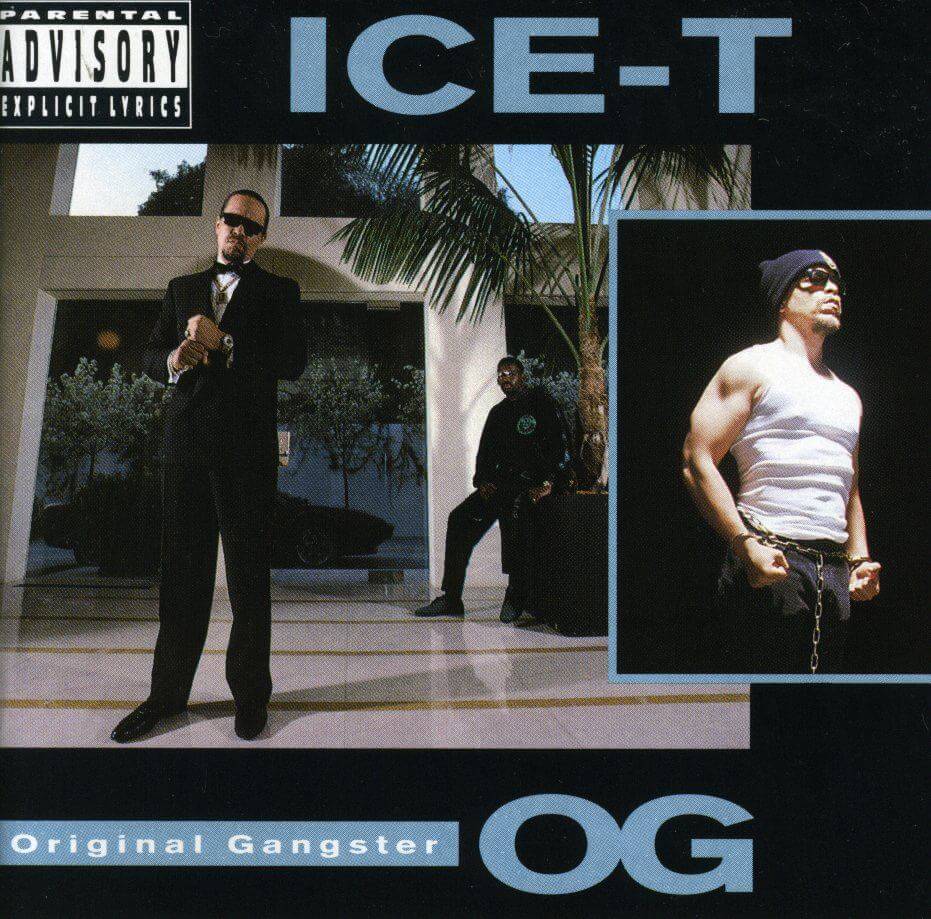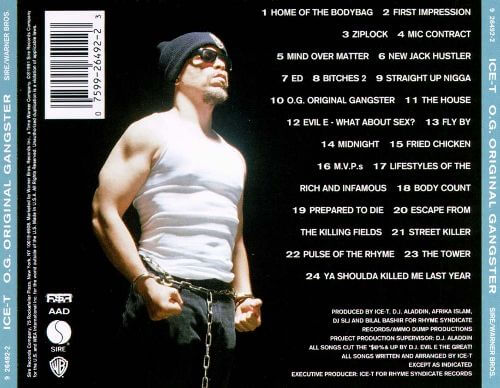Ice-T always fashioned himself as a politically-astute Lothario; the kind of guy capable of getting a snobby English dame to dub him the “epitome of antidisestablismentarianism” right before she admits, in far more explicit terms, to fancying his genitalia. In contrast, the media labeled him as a threat to decency, seeing his lack of sentimentality and penchant for bleak crime narrative as a conduit between the violent realities of urban life and the ears of pristine suburban teenagers.
Detractors did manage to get one detail right, Ice’s sphere of influence was expanding, but the new audience he’d won over wasn’t keeping up with his growth as an artist. Friend and foe alike never saw the forest for the trees, fixating on his affinity for profanity and sexual broad-mindedness instead of his radical politics, musical diversity and incorruptible honesty. Unphased, but concerned, Ice stripped O.G. Original Gangster of hardcore rap’s creature comforts: the sexcapades, empty threats and xenophobic attitudes, re-branding his street talk as both incendiary satire of political corruption and depressing portrait of urban poverty. By siphoning off the unnecessary elements, Ice-T concentrated his already potent poetic realism, constructing a work that never panders to easy shock tactics, aiming more to expose America’s antiquated caste system and the complacency that keeps it in power.
Likening his mind to a lethal weapon, Ice takes aim at the endless cycle of crime caused by disparity in income between the rich and poor, expressing frustration and sympathy through blunt, oft-sardonic cautionary tales. Depending on content, he can waver between jarring bursts of spoken word or quick vocal jabs, both equally capable of illustrating his themes and flexing his verbal skill set. As for creativity, he knows the players of the drug game and can easily adopt the perspective of a 19-year-old hustler or paranoid jailbird, showing how fast money makes streetwise teens into amoral capitalists and how the prison system turns men into animals, hell bent on survival.
His turn of phrase is just as canny as his playacting, transforming a gun in pocket to a “parabellum in the leather attache” and utilizing double entendre to show how silk sheets make one lie like a politician. He also draws startling parallels between historical atrocities and injustice at home, likening ghetto indoctrination of the black community to the crimes against humanity committed by the Khmer Rouge regime and the genocide of the American Indian.
The production, helmed by Ice and fellow Rhyme Syndicate members, matched the gravity of the vocals through a skittish, churning and noisy sound profile, culled from synth blast, industrial clatter and abrasive, squealing wind instruments. Though stripped of much its pomp, this is primarily 70’s funk territory, accelerated to match the rapidity of Ice’s declamation and the lives of his rebellious, but doomed protagonists. When not following in Funkadelic’s footsteps, Ice favors horror movie atmospherics or Black Flag style rave-ups, even handing a track over to his burgeoning hardcore band, Body Count, in an effort to broaden audience horizons. This sort of diversity can be a blessing on a 72-minute LP, particularly one with a predilection for confrontation, but Ice’s gift as a linguist is best served in the shorter, less adventurous moments.
Comprising barely a minute and composed primarily of Ice’s deep, commanding tone, “The House” is complex enough to demand multiple listens, initially suggesting an indictment of unfit parents, but gradually revealing something far more sinister: willful ignorance. By neglecting to acknowledge abused children and confront contemptible adults, the community is implicit in the outcome of the situation, leading, in this case, to a child’s death. It’s a heart-wrenching moment, but Ice doesn’t intend for this story to act as a singular moment of urban desperation, but as an indicator of a larger problem. He confronts this apathy, whether it be on the part of wealthy bureaucrats or members of his community, on nearly every track of Original Gangster, painting a portrait of a nation on the brink of collapse under its own cold comfort.
Ice T – O.G. Original Gangstarr was ranked #21 on Matt Deapo‘s Hip Hop Top 50, a ranking of 50 of the best Hip Hop albums recorded between 1978 and 2006, based on this consideration and these rules.

